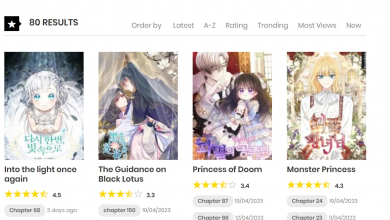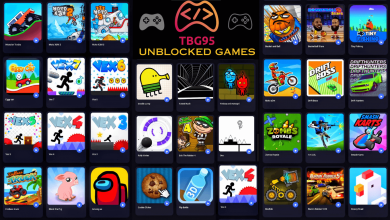Common Video Gaming Words, Phrases, and Jargon to Know

Common Video Gaming Words, Phrases, and Jargon to Know. Like any other activity, gaming has terms, phrases, and jargon that may be unfamiliar to outsiders. You’ve come to the perfect place if you’ve chosen to get into video games and want to master the vocabulary so you’re not confused by it.
We’ll explain common video gaming terms in layperson’s terms. While multiple games and genres have their vocabulary (and some gaming terms can even have various meanings depending on the situation), these broad definitions will get you up to rate on key gaming terms.
1. Adds
This word refers to “additional enemies,” typically during boss battles. As a result, you frequently have to strike a balance between taking care of ads and dealing damage to the boss.
2. Bots
Non-human opponents in online games are called bots, CPUs, and “computers.” Some multiplayer titles allow you to play the game modes against bots alone or with friends in local multiplayer.
To insult another player, call them a “bot.” For example, when someone performs poorly, you might call them a bot.
3. AFK
The acronym AFK stands for “away from the keyboard.” This indicates that a player is now unavailable.
4. AAA (Triple-A)
AAA games are titles created by huge studios like Ubisoft or EA. They typically have enormous marketing budgets and a lot of buzz surrounding them.
AAA games are distinguished from “indie” titles created by smaller development teams. You might also hear “AA” (double-A), which refers to mid-sized studios like Devolver Digital.
5. AoE
AoE, or “area of effect,” refers to spells or abilities with a specific effect region. This contrasts with abilities like a weapon that can only hit one target. Typically, a circle or other indication of where the ability is now in effect will appear.
6. Nerf/Buff
A buff refers to a change that, in some manner, makes a character or weapon more potent. On the other hand, a Nerf is a change that diminishes the potency of an element.
These terms typically refer to the balance of characters or weapons in online games that receive frequent upgrades. For example, increasing a weapon’s damage is a buff, whereas increasing the reload time is a nerf.
7. Bullet Sponge
It refers to an enemy that takes a lot of harm to kill. (because it “soaks up” damage like a sponge). For example, a bullet sponge is an enemy you intend to take down with a few shots but take several magazines to defeat.
8. Camping
As opposed to constantly moving around the map, camping refers to staying in one location. Individuals who do this are referred to as campers, and they do it to gain an advantage over other players. Online shooters like Call of Duty typically employ it.
9. Cheesy/Cheesy
Cheating in a video gaming uses a low-cost trick to quickly and easily complete a task. For example, you may repeatedly use a devastating combo against your opponent to defeat them. You can also cheese something in a single-player game by discovering a simple workaround to a challenge.
10. DLC
DLC is an acronym that stands for downloadable content. It refers to any additional elements that may be downloaded separately from the main game, such as characters, levels, cosmetics, etc. DLC is sometimes, but only sometimes, paid for separately.
11. Clans
Clans are groups of players who play jointly in several team-based multiplayer games. In games like Call of Duty, you can join a clan by adding a clan tag to your account. These are mostly informal; they must still be fully formed, professional teams.
12. Relaxation
Many games require you to wait a particular time after utilizing an ability before using it again. A cooling period is what this is called. More powerful abilities, in general, have longer cooldown durations.
13. Crafting
Crafting means using things obtained in a game (like plants or scrap metal) to make other valuable items, like weapons or healing potions. This is popular in various genres and can be simple or complex.
14. DPS
Short for “damage per second,” measures how much damage a specific weapon or attack deals. “DPS” can also refer to a character class primarily intended to deal damage, as opposed to other classes like tank or healer.
15. FPS
A first-person shooter game is an FPS. This refers to a genre in which you see the world via the eyes of your character rather than via the lens of a camera. First-person shooters frequently depict you with a weapon in your afloat hands, as if you’re the character.
“FPS” can also refer to “frames per second,” which measures how smoothly a game operates. For additional information, see the distinctions between frame rate and refresh rate.
16. DRM
It stands for “digital rights management,” which refers to programs that manage game copyright protection. This word encompasses everything from anti-piracy mechanisms embedded into games to the requirement to check in with Steam’s servers before playing games on PC.
DRM measures can be overzealous at times and harm genuine users.
17. Easter Eggs
The video game Easter eggs in games, like their real-life counterparts, are hidden messages or parts. This could be a minor hint to another title in the series, a humorous message buried by the developers, or something similar.
18. Feeding and Throwing
Although these two terms are not similar, they do have some qualities. Feeding is the act of getting regularly killed by the enemy team, which benefits your opponents because your partner is no longer alive. Feeding can be done unintentionally by an unskilled player or purposely to throw.
Throwing is purposely acting in a way that will cause the team to lose the game. For example, someone throwing may remain at their spawn and avoid assaulting the enemy, never utilize their abilities, run in alone and neglect their team, or generally make no effort to win.
19. Grabbing
Ganking is the act of a talented or high-level player ganging up on someone who has no way of protecting themselves.
20. GG
Online video gaming lingo frequently used is GG. It’s short for “good game,” and it’s frequently typed or said after the end of a game to show sportsmanship.
“GGEZ” adds “easy” to the back of the phrase, mocking the opposing team by claiming an easy win.
21. Error
A glitch, sometimes a bug, is an inadvertent error in a game’s software. For example, glitches could make your character caught in a wall, make opponents behave strangely, or even force the game to freeze completely. For example, see the best video gaming glitches.
22. Hitscanner
Hitscan refers to weapons that, when shot, immediately hit what they’re targeted at, most commonly in first-person shooter games. This differs with projectile weapons (like a bow and arrow), in which the shot takes time to reach its target.
23. Crushing
To achieve a specific goal in a game, grinding is the act of taking repeating actions. In an RPG, for example, a player may fight monsters repeatedly to level up or gain materials to enhance their weapons.
24. HP
HP, which stands for health points or hit points, is a metric that gauges your character’s vitality. When your HP reaches zero, your character usually dies.
25. HUD
The acronym HUD stands for a heads-up display. It refers to graphic elements in front of the play game information screen, like a health bar, money count, or mini-map, that assist you in keeping track of the game.
In certain games, the HUD elements are visible to the character in the game’s world, such as a map held up in their hands. These are referred to as “diegetic” stuff.
26. Lag
A frequent phrase in online video gaming is “lag,” which is the time that elapses between your input and the action in the game. This generally refers to online lag caused by high ping, in which the game server takes an abnormally long time to respond to your actions.
When the game does not respond quickly enough to the buttons you push, another kind of lag, input lag, arises.
27. K/D
K/D or KDR, “kill-to-death ratio,” is a popular measure of your success in online shooters. It simply divides the number of times you were eliminated by the number of times you were eliminated.
With six kills and one death (6.0), you’ll have a higher K/D than with ten kills and five fatalities (2.0).
28. Mash-up
Mashing, often known as button mashing, is the practice of rapidly pressing buttons. A “button masher” can refer to a game where you don’t need to strategize and can just hit lucky buttons to win or to someone who plays a game like this. You may also need to mash in some situations, like the QTEs listed below.
29. MMORPG
This abbreviation stands for “massively multiplayer online role-playing game.” It guides to a game with RPG elements in which thousands of players simultaneously reside in the same game world. A good example is World of Warcraft.
30. MP
In some games, MP, which stands for magic points or mana points, is the resource required to use spells and other special abilities. (often RPGs). You can no longer use special abilities when you run out of MP.
MP can also stand for “multiplayer,” as opposed to SP, which stands for “single-player.”
31. Mod
A mod (“modification”) is any player-created change to a game. Mods can range from minor bug fixes to completely new games based on the original’s core. Some developers dislike mods, while others adore them and include tools to search for mods in their games.
32. Noob
A noob (sometimes spelled n00b or newb) refers to someone new to a game. It can be used as an insult (for example, when someone makes fundamental blunders), but it is not always a derogatory term.
33. NPC
NPC stands for the non-player character (or non-playable character) and refers to any character you do not control in a game. NPCs often have predefined actions and behaviors and might be important characters in a game or just fillers.
34. OP
OP, or “overpowered,” refers to anything the player believes is overpowered in a game. For example, if there is one weapon that everyone chooses because it is manifestly superior to all others, it is OP.
35. Peel
Peeling is taking an enemy’s focus away from an ally and toward yourself. For instance, if an enemy has flanked to the back of your team and is attempting to destroy your healer, a tank should peel to draw the flanker’s attention and allow the healer to flee.
36. Ping
It is a measurement (in milliseconds) of how long it takes information from your machine to travel to the game’s server and back. Ping is better when low, as high numbers cause visible lag during online games.
37. PvP/PvE
PvP is short for player versus player. It refers to games (or modes) in which human players compete with one another. This differs from PvE (player versus environment or player against enemy) modes, in which you play against computer-controlled opponents.
38. Pwned
Pwned (pronounced “pond”) is a derivation of “owned” that is used to demonstrate mastery over another player. For example, you may say you pwned someone in an online match.
39. QTE
This gaming abbreviation stands for “quick-time event.” To avoid damage or a game over, you must suddenly push a button or another input in QTEs in games. Most gamers despise them since they require no skill and might appear out of nowhere.
40. Ragequit
Ragequitting refers to someone becoming so enraged about a game that they immediately cease playing.
41. RNG
RNG is an acronym that stands for “random number generator.” This refers to elements in games that are not the same each time you play. For more information, see a complete description of RNG in gaming.
42. RPG
A role-playing game, or RPG, is a vast genre. They are typically story-driven games with immersive landscapes in which your character has a variety of stats and items that you can level up by defeating monsters and completing quests.
RPGs are notoriously difficult to characterize. To learn more about what makes a game fall into this genre, see our introduction to RPGs.
43. Sandbox
A sandbox title is an extremely open-ended game, allowing players to do whatever they want. Minecraft is a classic example, although even games with a lot of player freedom, like Grand Theft Auto V, are sometimes considered sandboxes.
44. Skin
A skin is a decorative change to a character with no gameplay effect. Many games employ skins to attract players to spend end money or as a reward for achieving difficult objectives.
45. Smurf
In an online game, a “Smurf” account refers to a talented player who creates a secondary account to compete against lower-ranked opponents. Smurfs manipulate the ranking system to retain their account at the desired skill level.
46. Tank
A tank is a frequent team character class whose duty is to absorb damage and make space for their allies to complete other objectives, like destroying the enemy. Tanks frequently have a lot of health and call the shots for their team.
47. XP/EXP
A typical measure of your success in many genres is XP, which is short for experience points. When you collect enough XP, you typically graduate to the next level, which gives you new abilities, stat boosts, stronger weapons, and other benefits. It can be found in both online and offline games.
You Now Understand Video Game Terminology
It is hard to cover all Video gaming terms in a single list in a field as vast as video games. But you now understand some of the most frequent video gaming terms and more specific jargon.
If you become immersed in a certain genre or title, it will have its terms for learning. There are numerous genres to examine to find something you like. Common Video Gaming Words, Phrases, and Jargon to Know




